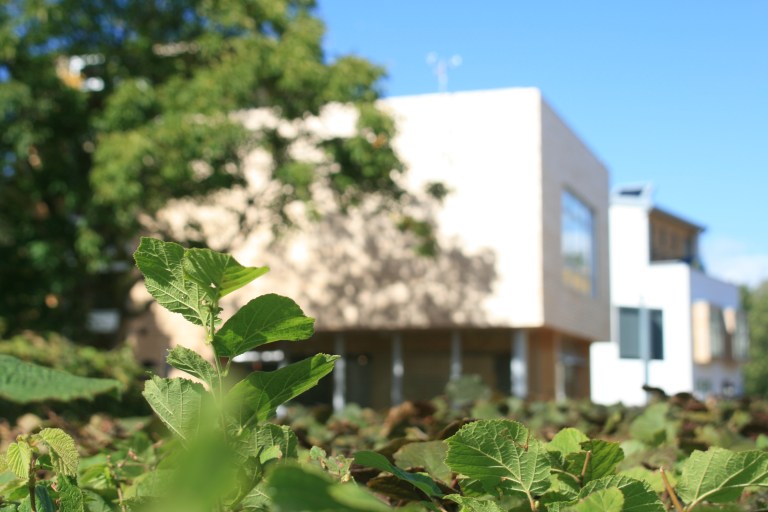Ecology and the built environment
Contents |
[edit] Introduction
Ecology is the study of the relationship between organisms and their physical environment. It provides information about the benefits of ecosystems and how humans can utilise the earth’s resources in a sustainable way.
Ecology is a multidisciplinary science and can be divided into the four main areas:
- Physiological ecology – the response of a single species to environmental conditions.
- Population ecology – the factors that affect the abundance and distribution of organisms.
- Community ecology – species found in a location and their interactions.
- Ecosystem ecology – the structure and function of the ecosystem and organisms within it.
[edit] History
The term ‘ecology’ was first used by the German zoologist Ernst Haeckel and comes from the Greek word oikos which means “household”, “home”, or “ place to live”. It evolved from the natural history of the ancient Greeks.
[edit] Studies
Ecologists study the relationships between organisms and their habitats, in a wide range of environments. The fundamental reasons for studying ecology are:
- Appreciation of the world we live in.
- Economics and the exploitation of natural resources, for example in fisheries, forestry, agriculture etc.
- It provides an insight into human societies and the way we live.
- It helps provide an understanding of how humans are changing the world.
The subject of ecology is not limited to just the terrestrial environment, it is also concerned with marine environments, lakes and streams,
[edit] Planning applications
Planning authorities have a duty to consider biodiversity when assessing planning applications. When a planning proposal is reasonably likely to affect species or habitats, an ecological assessment will be required. The ecological assessment will consider the development site with an appropriate buffer zone and should identify features including:
- Protected species.
- Protected sites.
- Wildlife corridors.
- Important habitats.
[edit] Related articles on Designing Buildings
- Biodiversity.
- Biodiversity net gain consultation.
- BREEAM Enhancing site ecology.
- BREEAM Long term impact on biodiversity.
- Campaigning for biodiversity.
- Ecological baseline.
- Ecological status/
- Ecological survey.
- Ecologist.
- Ecosystem.
- Protected species.
- Biodiversity offsetting.
- Ecological impact assessment.
- Eco-Management and Audit Scheme.
- Environmental Impact Assessment.
- Environmental plan.
- Environmental policy.
- Habitat Suitability Index.
- Helping to make Europe a wilder place.
- Japanese knotweed.
- Natural capital.
- Preliminary ecological appraisal.
- Spontaneous City at Cow Tower.
- Strategic ecology framework SEF.
- Tree preservation order.
[edit] External references
Surrey Hills Directory
[edit] Planning
Building Design in the Surrey Hills
[edit] Highways
Conserving and Enhancing Country Lanes in the Surrey Hills AONB
[edit] Biodiversity & Landscape
Landscapes Review: National Parks & AONBs 2019
Light Pollution - Threat to Migrating Birds
Making Local Nature Recovery Strategies deliver
[edit] Health & Wellbeing
Nature and Wellbeing: The Evidence
How nature can be used to improve wellbeing







